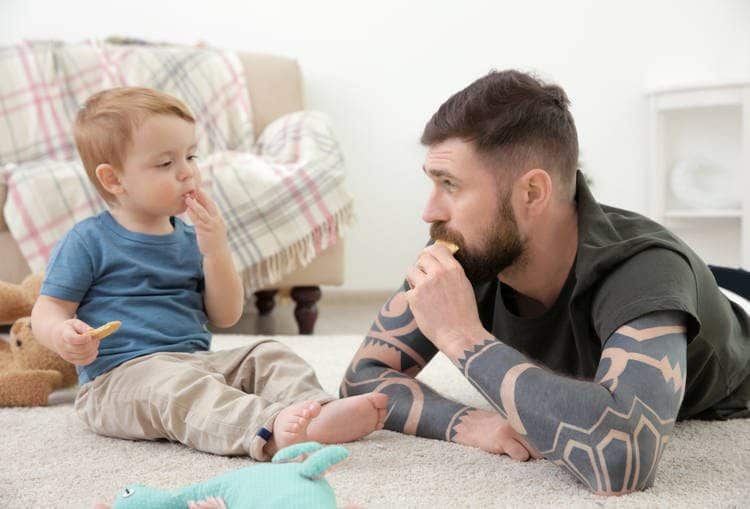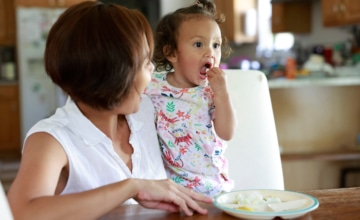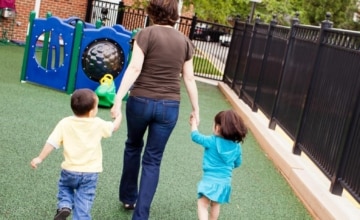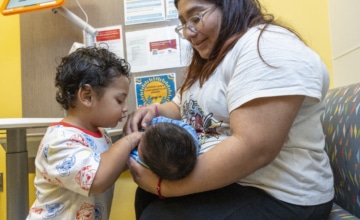Self-care is not selfish or indulgent—it’s how we keep ourselves well to ensure we are physically, emotionally, and mentally capable of being there for our young children.
Parenting a young child is already stressful at times. That’s why it’s important to remember to take care of yourself, too. When you feel calmer, it’s easier to be there for your children and meet their needs.
The Case for Self-Care During the COVID-19 Outbreak
Most everyone has heard the flight attendant tell them to put their own oxygen mask on before helping others. The same goes for parenting—your health and well-being is important so that you can nurture your child. Self-care is not selfish or indulgent—it’s how we keep ourselves well to ensure we are physically, emotionally, and mentally capable of being there for our young children.
The realities of COVID-19 make self-care even more important. The unknowns of what’s coming next can worry even the calmest of parents. If faced with long periods of uncertainty, other stressors may emerge—concern for family members, worries about lost income, keeping the fridge full of groceries, balancing job roles with child care, and more. But young children need their parents to offer a calm, stable, and predictable “home base” for them. It’s a challenge, but as a parent, the best way to help your child be at their best is to take care of yourself.
Pay Attention to How You Are Feeling
Anxiety, worry, and grief are normal responses during and after an event like coronavirus. You may feel overwhelmed by ordinary tasks or annoyed in situations when you’d usually be patient.
- Take time to notice your feelings and pause and reflect before responding to your child or co-parent. When you need to get calmer, try taking a few deep breaths to clear your head. Or you might try a mindfulness activity to restore your sense of calm.
- Consider limiting your exposure to the news. You might choose to watch a daily update from a trusted public health official or check in online at predetermined times when your child is not in the room.
- Think about reaching out to a healthcare professional for help with physical or mental health concerns. Many healthcare providers have moved to telemedicine during the pandemic—offering appointments online or by phone.
Imagine Your Child’s Behavior as a Communication
When young children experience a change in their routines, they may be confused or upset. But most children under three lack the words they need to share their feelings. They may “tell” you through their behavior: by being fussy, by withdrawing, by going back to earlier behaviors like wanting their pacifier or waking frequently at night. It’s easy to become frustrated, since as adults, we’re already managing so much. But when you encounter a challenging behavior, pause to think about what your child might be telling you. How could you respond in a way that meets their needs best? For example, if your child misses seeing their grandparent who provided child care before COVID-19, you can arrange for a video chat or by explaining the separation. Check out this resource for questions your toddler might have and age-appropriate ways to respond.
Make Time for Self-Care
You and your child are probably used to having time apart—you at work or school, and your child at child care or with a family care provider. If you’re stuck at home due to coronavirus precautions, your family may be together 24 hours a day and it may feel impossible to get a break for yourself. If you co-parent, talk about how you can share caregiving time so that each of you have a little time alone. If you and your co-parent are balancing work-at-home with child care, collaborate on creating daily schedules that allow each of you to focus on key professional responsibilities while keeping children safe and occupied. Schedules (in terms of who does what, when) may need to change on a daily basis, so making time to plan before bed or during breakfast can set up you up for a successful day.
If you don’t have another adult in the home, take advantage of “quiet time.” Is your child still taking naps? Use that time for yourself. Is your child too old for naps? Try to arrange a quiet hour or two each afternoon when your child reads in bed or plays quietly. Stay nearby, but take care of yourself. If needed, use the time after your child goes to bed or before they wake up in the morning for self-care as well.
Taking Care of Yourself
What activities make you happy? Reduce your stress level? Leave you feeling calm and rejuvenated? It’s different for everybody. What’s important is finding self-care strategies that work for YOU—ones that bring you peace and are realistic to use.
Health precautions like social distancing and self-quarantine present a challenge for self-care, since it may not be possible to go to the gym, exercise classes, book clubs, or sports events. Think about ways of adapting activities to formats that encourage social distancing:
- Outdoor/group exercise activities: Exercising outdoors, if it’s safe and feasible, is a great solution. Walking, hiking and biking trails are perfect choices. Online videos and apps that provide instructor-led exercise, like yoga or group workouts, are also great resources.
- Stay in touch with supports: Technology can take the edge off of feelings of isolation. Can book club meet over video chat? Can you “visit” grandparents the same way? Maybe you and a running partner can motivate one another with shareable playlists and text message support.
- Take time to relax: Sometimes, our minds and bodies just need a break. Meditation, mindfulness, and other replenishing activities (yoga, long baths, etc.) are a great way to let go of the pressures of the day.
And where’s your toddler while all this is going on? Think about ways your child can join you in some of your activities. Buckle baby safely into a jog stroller. Put a towel down next to your yoga mat for a toddler partner. Lie on your backs next to each other and practice deep breathing. While you still need some “alone time,” there are ways to invite our little ones to “share our calm” too.
We are in uncharted territory. Preparing for and living with the impact of coronavirus will have its challenges, and self-care may not seem like a priority. But that’s not true. Keeping ourselves supported and sustained is exactly what we need to ensure our families stay strong. You won’t just feel better, but you’ll be better for your family as well.
Looking for more information? Visit zerotothree.org/coronavirus for our latest resources and updates for families.




